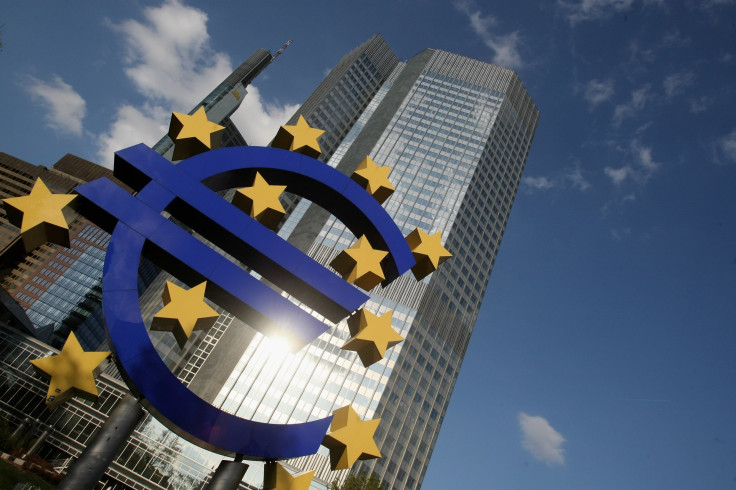ECB Meeting: Monetary Policy Left Unchanged; Inflation, Growth Forecasts In Focus

UPDATE: 7:55 a.m. EDT — In a widely expected move, the European Central Bank on Thursday kept its key rates unchanged, choosing to let the effects of its already massive monetary stimulus and quantitative easing program percolate through eurozone economies. The central bank also said that it would begin its corporate bond-purchase program — first announced in March — on June 8.
Focus now turns to ECB chief Mario Draghi’s press conference in Vienna later Thursday, when he is expected to provide updated inflation and growth forecasts for the 19-nation bloc.
“Although the expected (inflation forecast) adjustment is modest, it may help put a floor under inflation expectations and allow the ECB to remain in a wait-and-see mode while its latest measures work their way through the economy,” UniCredit economist Marco Valli told Reuters. “The revision is likely to be entirely energy-driven.”
Original story:
The European Central Bank is expected to keep its monetary policy unchanged when it meets in Vienna Thursday. Under the leadership of Mario Draghi, the ECB has already slashed its interest rates to record lows and ramped up its massive quantitative easing program.
On Thursday, Draghi may unveil fresh details of the bank's new corporate bond-buying program and the new round of cheap four-year loans for banks — both of which were announced in March and are scheduled to start later this month.
“We expect the ECB to try to strike a balance between cautious optimism on the effectiveness of its measures on growth and inflation and its readiness to react to adverse shocks,” Luigi Speranza, an analyst with BNP Paribas, told Reuters. “Draghi will probably try to sound more confident in the eurozone's economic recovery and the likelihood of a rise in inflation over time, emphasizing that the ECB is in no hurry to contemplate additional policy easing at this stage.”
Draghi’s confidence in the health of the eurozone economies is likely to be boosted by the Organization for Economic Cooperation and Development’s latest Global Economic Outlook report, which, on Wednesday, bumped up the 2016 growth forecast for the 19-nation bloc to 1.6 percent from its previous estimate of 1.4 percent.
On Thursday, the ECB is also likely to follow suit and revise upward its growth projection for the eurozone.
However, inflation, or lack thereof, remains a key area of concern. Despite the ECB’s massive $2 trillion stimulus package, which has now been in place for nearly 18 months, consumer prices in the eurozone have stubbornly persisted way below the bank’s 2 percent target. In May, for instance, consumer prices in the bloc fell 0.1 percent on-year, and core inflation, which excludes volatile energy and food prices, rose just 0.8 percent — close to the 0.7 percent rise registered in April.
Inflation in the eurozone has stayed at, or near, historically low levels since February 2013, weighed down primarily by low oil and commodity prices. However, many now expect the recent surge in oil prices, which saw a barrel of Brent crude rise to over $50 for the first time this year, will help push inflation above zero in the coming months.
“The past two-and-a-half years must have been extremely frustrating for the ECB because whenever they took action, oil prices would drop some more and destroy the effects of its stimulus on inflation expectations,” Martin Lueck, chief German investment strategist at the investment management firm BlackRock, told the Wall Street Journal. “Now they may be hoping that they will finally see the fruits of their labor.”
© Copyright IBTimes 2024. All rights reserved.






















